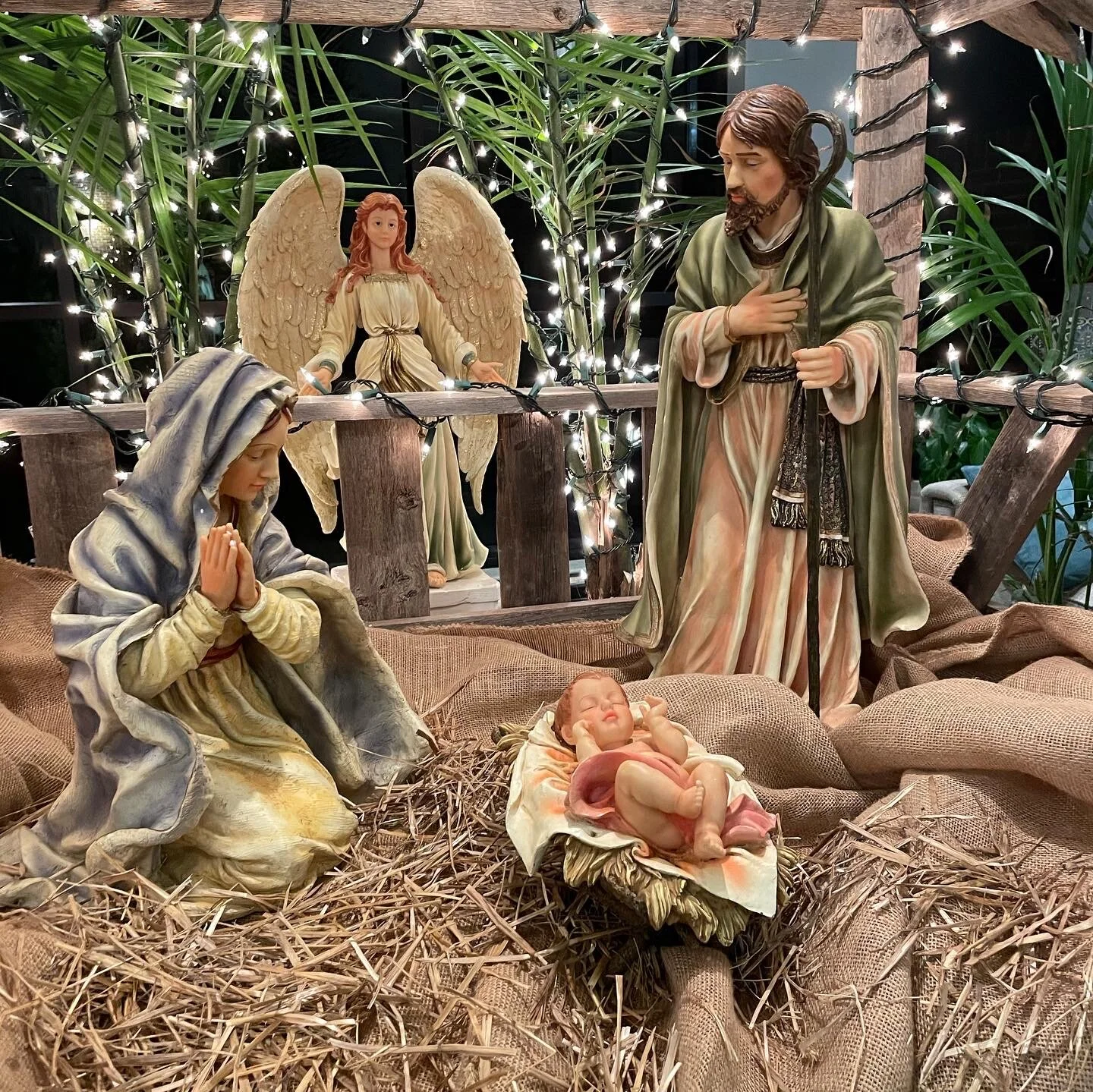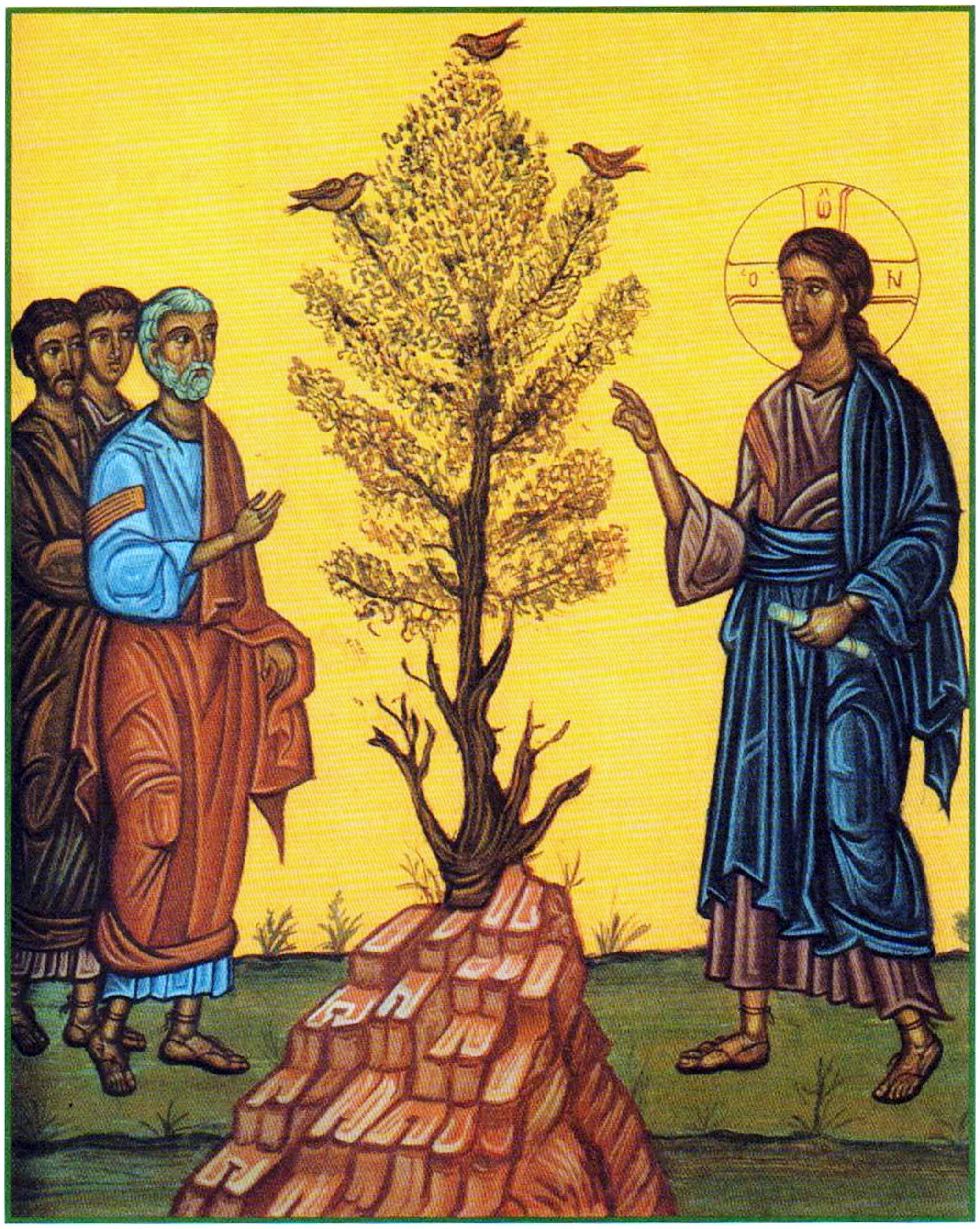Christmas Vigil and Midnight Masses
/Nativitas D.N.I.C.
Vigil & Midnight Mass
24-25 December 2025
Tonight we usher in our celebration of the birth of Jesus Christ! This arrival of the One who is the long-awaited Messiah and who is also God Himself is the fulfillment of centuries of promise. The sin of Adam and Eve created a rupture such that they could no longer be in God’s presence. The result for them, and for all who share fallen human nature, is that they were alienated from the blessings God had provided in the garden and they were alienated from one another. Perhaps the most damning alienation of all is that after the fall, Adam and Eve were not able to walk in communion with God, for when He comes into the garden, the Book of Genesis tells us that when they heard the sound of God walking in the garden, they “hid themselves from the presence of the Lord God” (Gn. 3:8). In the moments after the Fall, God first began His promises of a plan to save mankind from this alienation.
Adam and Eve, and all of us in this fallen human nature, tend to hide ourselves from our proper dignity. We hide ourselves from communion with God. That’s another definition of sin. We are estranged from that beautiful image of walking with God, of communion with God, as we tend to listen to the voice of the one who slithers his way in, placing doubts in our hearts and minds, and causing us to ruin God’s blessings because we trust more in what we can grasp for ourselves. The One whose birth we celebrate this night is the answer to so many centuries of promises that God would save us and make it possible again for us to walk with Him and to have communion of life with Him in that harmony first made for mankind in the Garden of Eden. At Christmas we celebrate Emmanuel, God-with-us, who abandons his majesty and all that would intimidate us by coming as a small, helpless infant who needs to be carried and held close.
If you have now, or if you ever have had an infant in your life at this time of year, you perhaps have the blessing of a special insight into the mystery of the Incarnation of God and his birth among us. Anytime we are greeted with the news of a birth, we want to know when we can come and look and see the baby. One of the most tender practices at Christmas is how we can ponder the birth of Jesus by making visits to the Nativity Scene at home or at church. Don’t we all naturally want to look upon the Baby Jesus in the Nativity Scene? In my prayer this Advent, the recollection of a family photo has been on my mind. It’s really served for me to draw to mind the msytery of the incarnation. I haven’t thought of that photo for decades, so I consider it a gift that God brought it to my mind. The photo was taken at home when my younger brother was only two months old. In the photo, the room is rather dark, and the prominent light is coming from a nearby lamp that gives the photo a warm glow, with light reflecting of our faces. In the photo, my 8-year old self is holding up my two-month old infant brother and we are both looking at each other face-to-face, just inches apart. As a novice big brother at that time, it’s not too hard to imagine what was going through my mind as I looked into his eyes. Questions like: Who is he? Where did he come from? How do I understand him? What is he thinking? What will he sound like when he eventually talks? What will he be like? What will he become?
The gift of recalling that photo has become a meditation in my prayer of the reality of what we celebrate tonight, a reality that our Nativity Scenes can only communicate in a static way. Namely, that God has come near. Mankind was made able to look upon Him. And He was made able to look upon us. Now to be clear, He was always able to see us by His power as God. But in the Incarnation, God was made able to see us with human eyes and to show us divine love in human form. The human face of godly love. Psalm 123 says, “Our eyes [are] on the Lord our God” (Ps. 123:2c). And so, they are. And so, we recall this as we naturally gravitate toward our nativity scenes at Christmas. And by this, it is possible for us to walk in harmony with God, to have communion with Him, and to resist hiding from him like Adam and Eve.
I want to leave you with the fruit of my prayer as I have meditated on the Incarnation, and recalled how we hide from God, and recalled the mystery of a baby brother, and the tender attraction to the Nativity Scene. Our nativity scenes will be taken down and packed away for another year – and all too soon. That reminder – albeit a static one – that we can look upon God who has come near will be stored away until next Christmas. But a lesson to take into each day forward, no matter the time of year, is that God can and does look upon us. When we look upon God and have our eyes on Him, figuratively in our mental prayer, or quite literally in adoration or at Holy Mass, we might tend to fill the silence with our questions, and our needs, and our agenda, much like 8-year old me wondering about a baby brother with many questions. I bet it would do us well in our spiritual life to foster the recollection that God looks at us and that prayer is, at least in one respect, simply letting Him look upon us and see us as we are. No hiding! Prayer is, at least in one respect, making sure that our questions and agenda aren’t the script that gets all the focus or fills all the time we spend in prayer. Rather, let’s consider the reality of that other Face and the other set of eyes looking back at us, like that family photo served to remind me. And let’s train ourselves in the peace of silence to ponder what questions might be on His mind as He looks upon us: What will you become? What will you do with your life? What are you thinking? Where are you going? Will you transfer some of that time spent looking into your phone and look at me as I look at you? Will you walk in harmony with me?
In our reading of Scripture, in our mental prayer, in our nativity scenes, in adoration, at Holy Mass, our eyes are on the Lord our God. The blessing of Christmas lives well beyond one day and well beyond the season when we foster deeper communion with God Emmanuel and recall that the One we look upon has made the first move to come near and to lay His eyes upon us!










